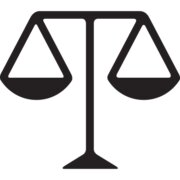Best White Collar Crime Lawyers in Birmingham
Share your needs with us, get contacted by law firms.
Free. Takes 2 min.
List of the best lawyers in Birmingham, United States
About White Collar Crime Law in Birmingham, United States
White collar crime law in Birmingham, U.S.A., deals with non-violent crimes committed by government or business professionals, often relating to financial fraud or deceit. The crimes typically involve deceit, breach of trust, or concealment rather than force or violence. Examples include embezzlement, fraud, insider trading, and money laundering. The exact statutes and penalties for white collar crimes are detailed in both the state of Alabama's laws and the federal laws of the United States.
Why You May Need a Lawyer
You may need a lawyer if you are under investigation, charged, or arrested for white collar crimes. A severe allegation such as fraud, embezzlement, or insider trading could have serious repercussions including hefty fines and imprisonment. Additionally, white collar crime cases are nuanced, complex, and usually involve a mix of state and federal laws. Having legal representation can help protect your rights, build a strong defense, and increase your chances of a favorable outcome.
Local Laws Overview
In Birmingham, according to Alabama laws, white collar crimes can carry significant penalties. For instance, depending on the amount or value involved, theft of property can range anywhere from a Class A misdemeanor to a Class B felony. Embezzlement charges can also vary dramatically, depending on the victim (individual or organization) and the amount of money or value involved. Federal laws come into play when white collar crimes cross state lines or involve federal agencies. For example, insider trading and securities fraud are frequently prosecuted under U.S. federal laws.
Frequently Asked Questions
What is considered a white collar crime?
White collar crimes refer to non-violent crimes that involve deceit, fraud, or breach of trust. They often involve manipulation of information or financial fraud and are typically committed by individuals in business or governmental positions.
What are the potential penalties for white collar crimes?
Potential penalties vary depending on the specific crime, the amount of money/vale involved, and whether the crime is prosecuted under state or federal law. Penalties can include fines, restitution, forfeiture of assets, probation, parole, and imprisonment.
Can a lawyer actually help if I'm charged with a white collar crime?
Absolutely. Lawyers with experience in white collar crimes understand the complex laws and procedures surrounding these charges. They can help protect your rights, identify weaknesses in the prosecution's case, negotiate plea deals, and advocate for you in court.
Is there a statute of limitations for white collar crimes?
The statute of limitations for white collar crimes varies depending on the nature of the crime and whether it is prosecuted under state or federal law. In some cases, the statute of limitations can be as long as five years.
What should I do if I'm accused of a white collar crime?
If you have been accused of a white collar crime, it's critical that you seek legal advice immediately. Hire an attorney who specializes in white collar crime and do not speak to police or investigators without your attorney present.
Additional Resources
The American Bar Association (ABA) has helpful resources and information about white collar crime. The National Association of Criminal Defense Lawyers (NACDL) offers white collar crime resources specific to the defense of these crimes. In Birmingham, you can also refer to the Birmingham Bar Association for local information and resources.
Next Steps
If you need legal assistance in a white collar crime case, the first step is to hire a lawyer who specializes in this area. Next, gather all pertinent information related to your case. Do not speak to investigators without your attorney present. Follow your lawyer's advice closely throughout the process.
Lawzana helps you find the best lawyers and law firms in Birmingham through a curated and pre-screened list of qualified legal professionals. Our platform offers rankings and detailed profiles of attorneys and law firms, allowing you to compare based on practice areas, including White Collar Crime, experience, and client feedback.
Each profile includes a description of the firm's areas of practice, client reviews, team members and partners, year of establishment, spoken languages, office locations, contact information, social media presence, and any published articles or resources. Most firms on our platform speak English and are experienced in both local and international legal matters.
Get a quote from top-rated law firms in Birmingham, United States — quickly, securely, and without unnecessary hassle.
Disclaimer:
The information provided on this page is for general informational purposes only and does not constitute legal advice. While we strive to ensure the accuracy and relevance of the content, legal information may change over time, and interpretations of the law can vary. You should always consult with a qualified legal professional for advice specific to your situation.
We disclaim all liability for actions taken or not taken based on the content of this page. If you believe any information is incorrect or outdated, please contact us, and we will review and update it where appropriate.











